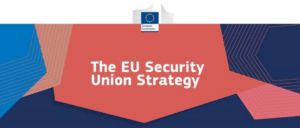Deborah Avant, Professor at the University of Denver and the 2022–2023 President of the International Studies Association (ISA), one of the world’s most influential international studies associations, visited our country. In our interview, we asked her about her research area, the private military companies, and the agonistic reconciliation of divergent perspectives.
You prefer questions to answers, you said at a recent conference at the university. And in one of your books, The Market for Force, you discuss the rise of private military and security companies. So, let me start this interview this way: what do you think are the most important questions on this issue?
I think for me the most important question about any military force is the extent to which it serves the common interest as opposed to individual interests. I think that is the critical question about military or police forces. I think the same question should be asked about private security companies. This fits with a long tradition of research on civil-military relations, which informed the questions I asked in my book: can these private companies can be managed in a way that is aligned with the common interest?
You also examined the role of non-state actors (NGOs) and multinational corporations in shaping global governance. How do you see these actors influencing international politics?
They are having a huge impact. The growth in their influence started in the 1990s, but has been even more pronounced since then. My co-authors and I edited a volume in 2010, Who Governs the Globe? , which reflects on these very issues. In that volume, we began by looking at the impact of specific non-state actors, like corporations and NGOs. It turned out that the impact is not well explained by the type of organization. Companies, NGOs (and governments) can sometimes influence global politics in similar ways. . It is more important to ask whether these organizations address common concerns or enable individuals or small groups to “capture” politics for their individual puposes. So, I think that the question that I have asked about the market for force is also important to ask about non-state actors.
On this subject, what do we know about the Wagner Group? What are the most important questions about them?
The Wagner Group is a complicated development for those who study private military and security companies, because it does not operate like a Western-style commercial company. Private security forces are still illegal in Russia. By allowing the Wagner Group to work – especially in the period 2016-2020, when they did a lot of work in Africa and Syria – Putin has created a situation where this group has become beholden to him. Wagner was always supposed to do what Putin wanted: if it refused to comply, the Russian state would immediately label it an illegal force. The situation in Ukraine is a little different now, as the use of this force has become public. What is interesting for me is the tension between the Russian forces and the Wagner group. Prigozhin has said he will pull out the Wagner group and see how the Russian troops perform He also accused the Russian military of not giving him enough ammunition. So, it looks like a power struggle. I have often used a called principal–agent theory to understand civil-military relations. A lot of times you hire an agent because they can do something that the principal can’t. But if the agent establishes a strong enough presence, they become self-propelled, so to speak. I’m not an expert on Russian politics, but the big concern about strong agents is always whether or not they remain loyal to their principal. It is not clear who Prigozhin is loyal to. Though people have worried in the commercial space about a company switching to the side of the highest bidder, this has very rarely happened. Perhaps this is because there have been many more values and norms built into the market decision making than people imagined. It is of greater concern, I think, with Wagner. Commercial military service providers are concerned that forces like the Wagner Group, if left unchecked, could pull the industry back into mercenary territory and questioning the legitimacy of the whole market.
How can you research this kind of private power? It is in their very name that they are private.
Even before I started working on that book, I attended conferences in the 1990s where I examined various peace missions in which the US was involved. Some of the people who work for these companies were at these conferences. So, I had the opportunity to meet them, have some of the conversations that you would have at a conference. Slowly a little bit of trust was built up between us. I think that although I can be critical sometimes, most people trust me to be fair. So first I met some people through conferences, then I wrote a bit about these companies, and then I engaged more with the issue through initiatives such as the Voluntary Principles on Security and Human Rights. I think it’s the same as doing research anywhere else. You must build relationships, you have to talk to people, and if they think you’re decent, or if they think you know what you’re talking about, they’re willing to talk to you.
The conference also stressed the need to include different perspectives and voices in the decision-making process. How can we promote this inclusiveness?
Today, it is a serious difficulty for everyone that things are so polarized. In some cases one point of view challenges another person’s right to exist. There are a few philosophies, schools of thought, that I’ve been using a lot lately. For example, the pragmatist school is based on the idea that engaging with difference is critical to creativity and the inclusion of new knowledge. This school is closely related to another philosophy called agonism, it’s about respectful disagreement. We need to find ways to engage with other people even if we disagree with them strongly. It is a dance, a kind of dance, to manage to achieve this perspective. It’s a dance of trying to bring as many different perspectives as possible into the decision. I am very interested today in stakeholder engagement and how to bring different perspectives together. As a researcher, I try to encourage people to understand more about this and to explore for themselves how they can understand, respect and process different perspectives from their own.
Photo: Dénes Szilágyi



